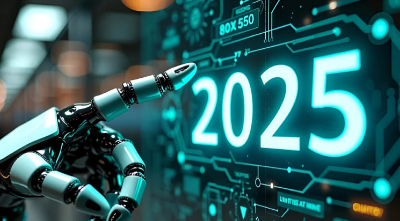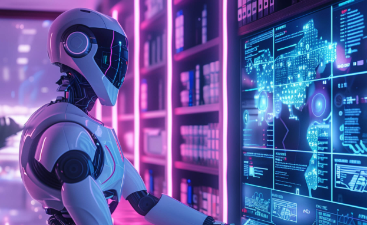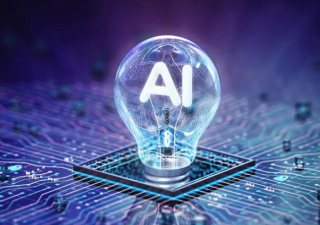In today's rapidly advancing technology, artificial intelligence, like a brilliant meteor streaking across the night sky, has shattered the tranquility of everyday life. It's no longer just a futuristic vision in movies; it's truly integrated into our daily lives.Intelligent technology is reshaping our daily lives with unprecedented depth and breadth, from the home environment to urban operations, bringing significant improvements in convenience, efficiency, and experience. AI is quietly permeating every corner of our lives, like trickles of water converging into rivers and seas, gradually reshaping our lifestyles.AI is becoming an extension of human capabilities, a partner in thought, and even a future "symbiotic entity."
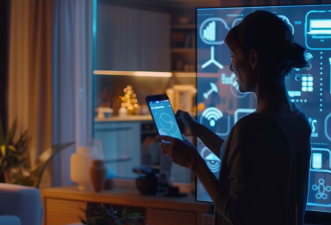
Everyday Applications of Artificial Intelligence
◆ The Transformation of Life Assistants
Once, our lives seemed like a chaotic carnival, with trivial matters like out-of-control dancers running wild on the stage of life. The relentless blast of the alarm clock in the morning would always abruptly awaken us from our dreams, and our minds would begin the new day in chaos. Arguments at the market, the rush of work, the piles of paperwork at the office—each one was filled with challenges. This hectic and chaotic state of life makes one lament the hardships of life.
However, the advent of artificial intelligence has been a salvation, bringing order and convenience to our lives. Through intelligent voice assistants and smart home systems, AI has transformed people's lives from chaos to order, improving convenience and comfort. Intelligent voice assistants have become our intimate assistants, available 24/7 and ready to serve us at any time. They use advanced natural language processing technology to understand our needs and respond quickly. Whether checking the weather, setting an alarm, or playing music, it all happens in one go, lightning fast. This beacon illuminates the path forward, allowing us to find our way through the maze of life and escape the confusion.
Smart home systems transform the home into a technologically advanced "smart wonderland." Leveraging the Internet of Things (IoT), various home devices are interconnected, allowing users to easily control lighting, air conditioning, curtains, and more via their phone or voice commands. When you arrive home exhausted from work and open the door, the lights illuminate warmly and brightly, creating a pleasant atmosphere. The air conditioning intelligently adjusts to the perfect temperature, transporting you to a perpetually spring-like wonderland. The music system gently plays your favorite melodies, the notes dancing like elves in your ears, soothing the fatigue of the day. This intelligent living experience is like a magical butler silently taking care of everything, making life easier and more comfortable, like a fairytale.
◆ Innovations in Health Management
Artificial intelligence also plays an indispensable role in health management. Wearable devices, combined with artificial intelligence, provide users with personalized health management services, helping them monitor and improve their health in real time. Smart bracelets, smartwatches, and other wearable devices are equipped with advanced sensors that monitor health data such as heart rate, sleep quality, and step count in real time. Using big data analysis and machine learning algorithms, these devices can comprehensively assess and accurately warn users of their health and provide personalized recommendations. For example, if an abnormal heart rate is detected, a prompt reminder will be issued to recommend medical attention; if poor sleep quality is detected, the cause will be analyzed and improvement plans will be provided. This comprehensive health management service is like providing each user with a dedicated health guardian, helping them to monitor their health, prevent disease, and maintain optimal physical condition.
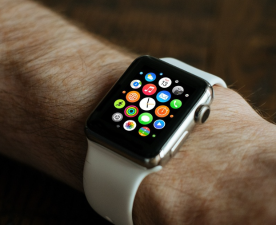
Changes in the Workplace
◆ Revolutionary Workstyles
The impact of artificial intelligence on the workplace is a double-edged sword, bringing both significant challenges and opening up new possibilities. For monotonous, routine tasks such as data entry, filing, and customer service, AI, with its exceptional efficiency, accuracy, and durability, has become an ideal alternative. They can rapidly process vast amounts of data, completing tedious tasks in a short period of time with minimal error rates. This undoubtedly creates immense professional pressure for employees in these roles, putting them at risk of being eliminated and causing them to feel insecure.
However, from another perspective, AI has also revolutionized the workplace. While replacing some repetitive tasks, it has also created new opportunities, enabling employees to pursue more creative and challenging work. Like a magician, AI can free employees from repetitive labor, freeing them up to devote more time and energy to more creative and challenging endeavors. In the design field, AI analyzes vast amounts of work and user feedback to generate a variety of innovative design solutions, creating an endless treasure trove of inspiration. Designers can then optimize and refine these solutions, thereby unleashing their creativity, improving design efficiency and quality, and creating remarkable masterpieces. In writing, AI can also provide a wealth of material and ideas, acting like a knowledgeable mentor, helping authors broaden their thinking and produce more engaging and impactful writing. While AI cannot completely replace human creativity and emotional expression, it is undoubtedly a powerful aid, injecting new vitality into work and making it more interesting and challenging.
◆ Developments in Education and Social Networking
Artificial intelligence is driving immersive learning experiences and revolutionizing social interaction, providing users with personalized social content. However, this also raises concerns about its impact on real-world social interactions. Virtual reality (VR) and augmented reality (AR) technologies, combined with AI, create an immersive learning environment, akin to a dreamlike learning paradise. Here, students can experience the impact of historical events firsthand, engage in conversations with historical figures across time and space, and experience a wondrous journey through time and space. They can explore the mysteries of the microscopic world, observe the delicate processes of cell division and growth, and become little explorers of the microscopic world. Furthermore, safe and harmless experimental procedures make learning more engaging and engaging. This immersive learning experience greatly stimulates students' interest and curiosity, motivating them to engage more proactively in learning and achieve efficient knowledge acquisition, essentially giving their learning wings to soar.




